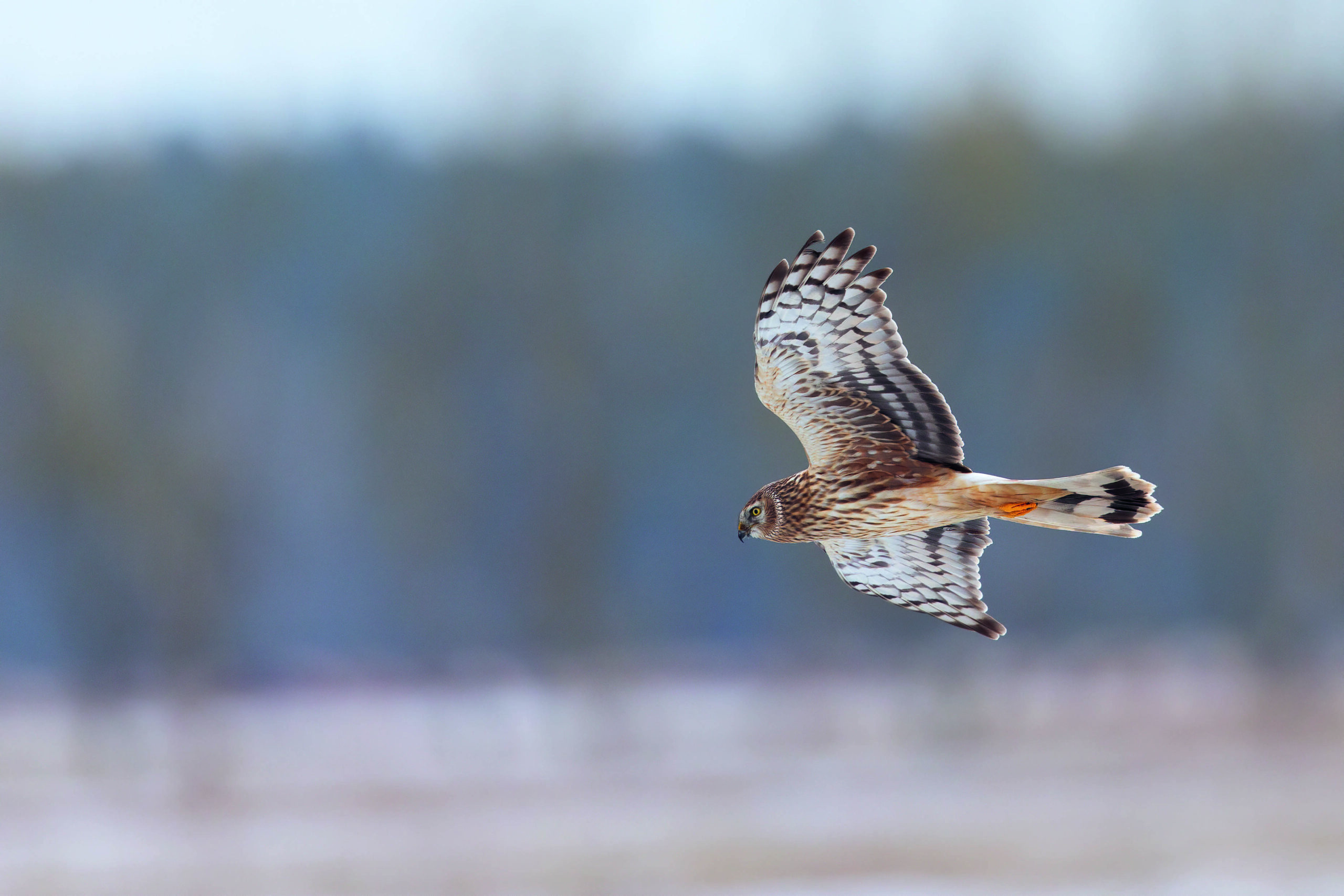Raptor killers are undermining our conservation credentials
Sporting estates are vital for restoring raptor numbers, but continued persecution will finish game shooting, says BASC’s Conor O’Gorman.

I was recently contacted by longstanding BASC member Dr Chris Goard, who had concerns about the findings of a 2023 research paper titled Illegal killing associated with gamebird management accounts for up to three-quarters of annual mortality in hen harriers.
We had a lengthy chat and Chris explained: “Raptor persecution is the worst kind of publicity for us. Shoots across the UK do a huge amount of conservation work for wildlife, including our birds of prey. However, we will be judged by our failures to police illegal killing rather than our conservation successes, and changes in law restricting shooting will be inevitable.
“I think we each need to make it clear in our shooting circles that killing birds of prey is socially unacceptable. If the hen harriers continue to be shot, trapped and poisoned, that will be the end of grouse shooting and restrictions on all game shooting will follow, regardless of our conservation credentials.”
I agree wholeheartedly with Chris that we all need to work together to stamp out the illegal killing of raptors. Yes, there are scenarios that require the licensed control of raptors, and those applications should be processed objectively by the conservation agencies, but those who take the law into their own hands are our enemy and we should not enable or protect them.
Overshadowing
I reviewed the hen harrier research paper that Chris contacted me about when it was published and felt that the title did not quite match the findings. However, while we can quibble over statistics, there is no getting away from the fact that hen harriers are being illegally killed, and every incident overshadows what should be the celebration of a conservation success story.
That is because hen harriers are doing well on the breeding front, with 141 hen harrier chicks fledged in England this year compared to 119 last year – the seventh year in a row that numbers have increased. That included 24 brood-managed chicks taken under licence from six nests on grouse moors.
The BASC Wildlife Fund is providing £25,000 annually for brood management, and the charity’s Legacy Fund has provided £75,000 towards a project to re-introduce hen harriers to the south of England. However, when the public and politicians read in the media about hen harrier chicks being “trampled to death” in their camera-monitored nest or a satellite-tracked hen harrier being “decapitated alive”, those reports linger longer in memory than all of our conservation efforts combined.
Two weeks ago, the RSPB published its annual Birdcrime report, with its press release stating that “there were 61 confirmed bird of prey persecution incidents, and at least 64% of these were linked to land used for gamebird shooting”, with renewed calls for the introduction of grouse moor licensing legislation across the UK.
I have been through the report and we could question the statistics and
methodology, we could point out that bird of prey populations are faring very well and that overall raptor persecution incidents have been going down over a 10-year period. However, there is no getting away from the fact that last year saw the continued shooting, trapping and poisoning of white-tailed eagles, goshawks, peregrine falcons, hen harriers, buzzards and red kites.
Channel 4 covered the report as an exclusive, focusing on two case studies: the shooting of a satellite-tracked hen harrier and the poisoning of white-tailed eagles.
Media condemnation
BASC issued a statement about the report, explaining that it showed a dramatic year-on-year decrease in incidents and that we condemn raptor persecution and would expel any member convicted of such an offence. That was, of course, lost in the noise of media condemnation of the ongoing shooting, trapping and poisoning of birds of prey in the lowlands and uplands across the UK.
The raptor killers might be few among us, and we are a million strong, but their actions continue to undermine our conservation credentials.








